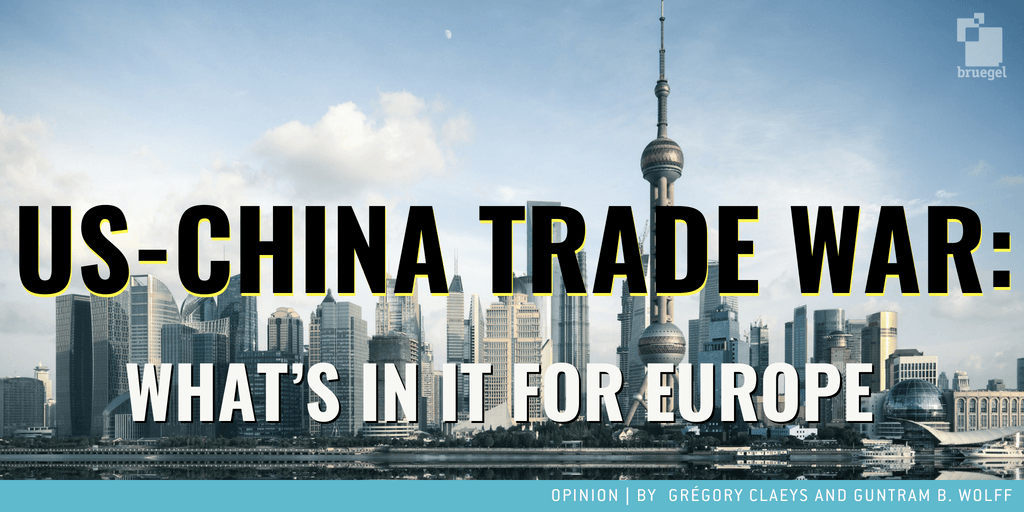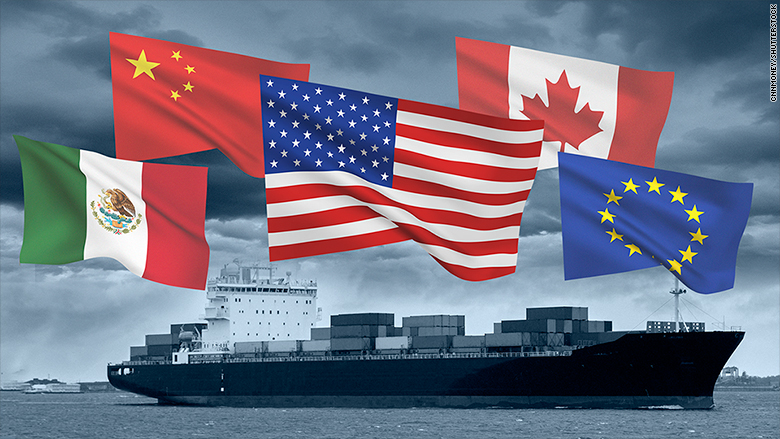
German Foreign Policy
Political advisors in Berlin are calling for “closing ranks” behind the USA against China. In Washington, experts are playing out war scenarios against the People’s Republic.
BERLIN/WASHINGTON/BEIJING (April 2, 2021) — China’s countermeasures to recent EU sanctions is spurring a debate over further punitive measures and the possibility of closing ranks behind the United States. The renunciation of the recently concluded investment agreement with the People’s Republic of China, for example, is now in discussion. This agreement had been reached through considerable efforts, particularly by Berlin, because major German companies are dependent on business with China for their very existence. Volkswagen and Infineon, for example, generate around two-fifths of their revenues in China.
Transatlantic-oriented political advisors are now demanding that Germany “wake up” and take up position against “China’s economic might.” An influential commentator calls for “closing ranks” with Washington and speculates on Berlin’s stance in the case if a war between the United States and China. For years already, US experts have been contemplating such a war. Today however, they are no longer sure that the United States can win that war.

China’s Countermeasures
The German debate on how to deal with China has been spurred by China’s recent reactions to western sanctions. Following EU sanctions against Chinese officials, Beijing responded with coercive measures against EU politicians, scholars and institutions. It has also been reported that employees of security-relevant companies, government agencies and members of the military are no longer allowed to purchase E-cars by the US Tesla company, because they can be used for espionage. [1]
At least some of the German corporations were again made aware of their vulnerability through conflicts with the People’s Republic. In China, VW generates 41 percent of its total sales, Infineon 39 percent and Daimler 29 percent. Even Adidas indicated that 22 percent of its revenues are generated in the People’s Republic. [2] Chinese calls for boycotting some western clothing companies, because they, in turn, boycott cotton from Xinjiang, have heightened anxiety — and this, while China’s economic clout is continuing to grow, not least of all, due to the Corona crisis.
The Asian Century
So far, the German government has been relying on combining its political confrontation with Beijing with close economic cooperation and thus has pushed through the EU’s consent on an investment agreement with China in late 2020.[3] Siemens CEO Joe Kaeser agreed and declared that China could “if necessary, definitely afford to abandon the German market, the other way around is not possible.[4]
Kaeser succinctly considers that “the 21st century is the Asian century and we have to live with it.” In fact, not only China will, more than likely, achieve a greater — US dollar equivalent — economic output than the United States already by 2028 or 2029, and thus become the strongest economic power in the world. Asia, as a whole, is growing faster than the rest of the world and, by 2050, at the latest, could account for over half of global output, predicts the Asian Development Bank (ADB) — a share, of course, that is equal to its portion of the world’s population.
Not only Berlin but also London is orienting its focus on the expansion of economic relations with Asia, including China, as was outlined in the recently published paper “Global Britain in a competitive age.” (german-foreign-policy.com reported. [5])

“Can’t Run with the Hare and Hunt with the Hounds”
This is mainly being criticized by transatlantic-oriented circles — with a feeling of confirmation, through the fact that Beijing, given its economic potency, can afford to impose countermeasures to western sanctions. Germany has been in awe of “China’s economic might” for “too long,” according to a current article published by the German Council on Foreign Relations (DGAP), it must “wake up” and take a stronger position against Beijing. [6]
Demands, calling on the EU Parliament not to ratify the EU/China investment agreement are growing louder. In reference to China’s counter-sanctions, the Chair of the EU Parliament’s Committee on International Trade, Bernd Lange (SPD) declared that the fact that EU parliamentarians are also affected shows it “can only backfire.” [7] With an eye on the escalating conflict between the USA and China, influential commentators are calling for “closing ranks behind America.” “You can’t Run with the Hare and Hunt with the Hounds.” [8]
Of course, “closing ranks” behind America “will come at a price.” “A new trade war” is conceivable or a “military … confrontation over Taiwan or in the South China Sea.” “Would Germany … still stand behind America in these cases?”
“War with China”
The appraisal that a “military confrontation” with China could result, is not merely hot air. Already five years ago the US Rand Corporation published an extensive study entitled “War with China,” where concrete war scenarios were discussed.
The authors predicted that such a war could be restricted to conventional weapons, and, because the People’s Republic has but a limited number of conventional weapons that could reach the United States, the conflict would start and remain in East Asia; China would be seriously damaged, the USA, hardly.[9] However, a reliable prediction is not possible for whether the conflict can be quickly ended or last a long time, reaching the highest level of escalation.
The only thing that is clear is that the People’s Republic is currently engaged in a military build-up, to be prepared for any eventual attack by the United States. Therefore, the later a US/Chinese war, the more painful it will probably be for the United States.

War Simulations
Since quite some time, the Rand Corporation’s experts have been walking through possible scenarios of military confrontations with China — and they have arrived at the conclusion that a victory for the United States is no longer guaranteed.
For example, they have now realized that China cannot do much against the F-35 jets, however, they can destroy the planes’ runways at US bases and on US aircraft carriers with their medium range missiles. It can also shoot down satellites, thereby inflicting heavy damage on US military communications. It is possible that the time has come, where Beijing cannot be defeated militarily [10] — in any case, not without an enormous arms build-up in the Asia-Pacific realm. That is exactly what the Biden administration is initiating.
The Pentagon plans to invest around US $27 billion, [11] to defend US bases in the Pacific with sophisticated missile defense systems and to station medium range missiles in China’s vicinity, and where possible, along the so-called First Island Chain ranging from Japan via Taiwan to the Philippines. This is supposed to help make a war against China allegedly winnable — and therefore wageable.
Related Reading: Together Against China and War Against China.
[1] See also Mit gleicher Münze.
[2] See also The Asian Century.
[3] See also “Ein Sturm zieht auf”.
[4] Nicole Bastian, Dana Heide: Joe Kaeser fordert gemeinsame europäische Antwort auf Chinas Wirtschaftsstrategie. handelsblatt.com 26.02.2021.
[5] See also Global Britain and the EU.
[6] Henning Hoff: Under the influence. dgap.org 23.03.2021.
[7] Ulrich Ladurner: Kippt nun das Investitionsabkommen mit der EU? zeit.de 24.01.2021.
[8] Nikolas Busse: Ringen mit China. Frankfurter Allgemeine Zeitung 29.03.2021.
[9] David C. Gompert, Astrid Stuth Cevallos, Christina L. Garafola: War with China. Thinking Through the Unthinkable. Santa Monica 2016.
[10] Kathy Gilsinan: How the U.S. Could Lose a War With China. theatlantic.com 25.07.2019.
[11] Joseph Trevithick: This Is The Pentagon’s $27 Billion Master Plan To Deter China In The Pacific. thedrive.com 05.03.2021.
Posted in accordance with Title 17, Section 107, US Code, for noncommercial, educational purposes